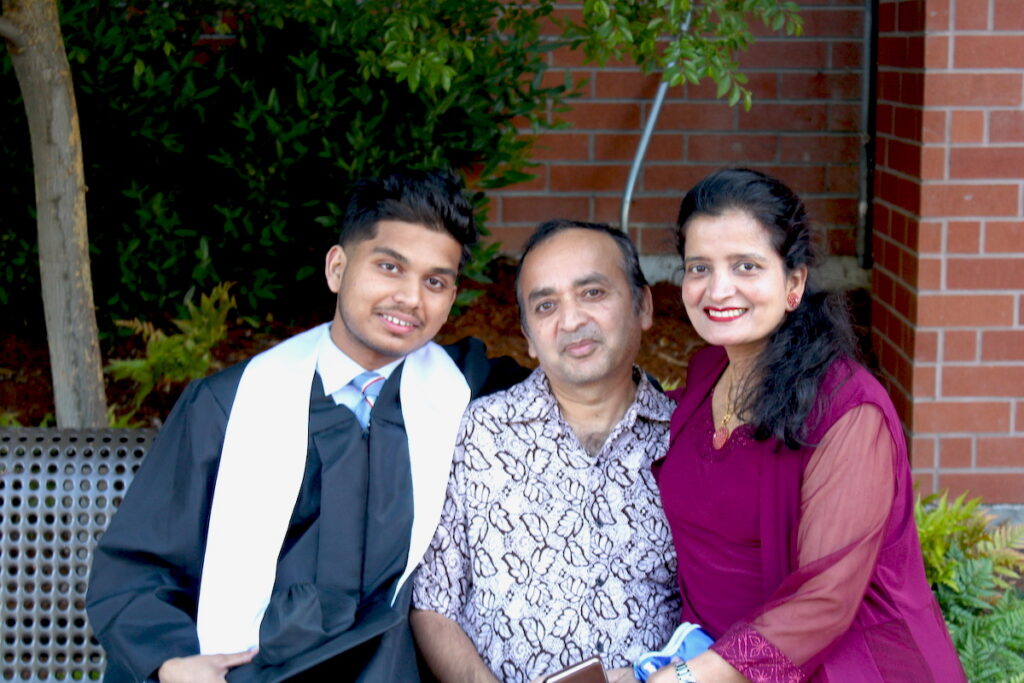
Wellness Part 3: Creating Mental Space
Editor’s note: This article was originally given as a speech at the annual Student Affairs State of Division on October 7, 2021. Shreejal Luitel is a sophomore studying Industrial Engineering and Operations Research at UC Berkeley and a Fiat Lux Scholar. If you’re looking for a scholarship or need help finding one, contact the Financial Aid and Scholarships Office.
How difficult would it be for you to sit in a room for 15 minutes focusing only on your breath? Maybe give it a try tonight and notice how the mind moves from one thought to another incessantly. We’ve little control over our minds but the mind exerts large control over our day-to-day functions.
Anapana: Observing Natural Breath
I started practicing ānāpāna—mindfulness of observing our natural respiration—after my cousin from Nepal mentioned to me that it transformed his life. And, in many ways, the simple practice of observing and focusing on my natural breath has transformed mine too.
Exasperated by the effects of the pandemic, dealing with family obligations, school commitments and social distress, the mind wanders into the mist. I began to doubt my academic capabilities as a first-gen college student while taking my first bio class at Berkeley. I felt that I didn’t have it within me to pass the class. At the time, my dad was also sick and in the Emergency Room, I felt unsure of where my future was headed towards. During the past 18 months of Zoom, I’ve found that the sacred technique of ānāpāna—mindfulness of breathing taught by the Buddha—has allowed me to clear up some of the fog and better discover the luminosity in my life.
Using Meditation to Calm Anxiety
I remember times during the first six months of the pandemic where I felt a lot of anxiety because my transition to Cal was a bit peculiar and it was compounded by the lack of social interactions. I didn’t have a lot of people I could talk to about my situation and I became frightened about what was to come.
Observing my natural respiration for 15 minutes a day transformed my life in inexplicably profound ways. When you initially attempt the technique of ānāpāna even for 15 minutes, you will find that each second feels like an hour and each minute feels like an entire year. And it’s important—even if it’s for a little while—to take time to destress from the problems of everyday life by meditating.
Benefits of Breathwork
I witnessed several changes in my life post-meditation: I was more attentive in my classes and in many ways, more empathetic toward others’ needs. Let’s face it, when we’re in Zoom calls, we do get the urge to check our phones and oftentimes, we do… I found with ānāpāna that I could change some of the habit patterns of my mind and just enjoy the moment for what it is—even if it’s a professor ranting about the nuisances in their everyday life. I also felt a lot more stress-free.
Right before an exam or before class starts, to develop a sharper focus, I practice ānāpāna for about five minutes, which helps me alleviate some of my stress and be more present in the moment. And, with much of my family responsibilities, through meditation, I am beginning to realize the impermanent nature of the world. Everything is constantly changing and I realize how far my hands can stretch. The only thing that I can control is my mind—outside of that, I’ve no control. In ways that perhaps are inexplicable, mindfulness has made me more equanimous.
Learning to Appreciate Each Moment
To this day, I still practice ānāpāna and I have recently started practicing Vipassanā—mindfulness of observing sensations in my body. In many contentious situations, I’ve realized that I’ve become more tranquil: finding a peace of mind. I’ve begun to ask myself if many of the things we worry about really matters in the scheme of life. When I am in my 80’s, will I really think about the exam that I failed my freshman year in college? The only thing that matters is now. How mindful we are dictates how much we love and care about others. How much we love dictates how happy we are. And our happiness allows us to live in the moment.

Photo courtesy of Shreejal Luitel (left) and parents.
Shreejal Luitel (he/him/his) is a sophomore at UC Berkeley majoring in Industrial Engineering and Operations Research. Feature image courtesy of Shreejal Luitel.